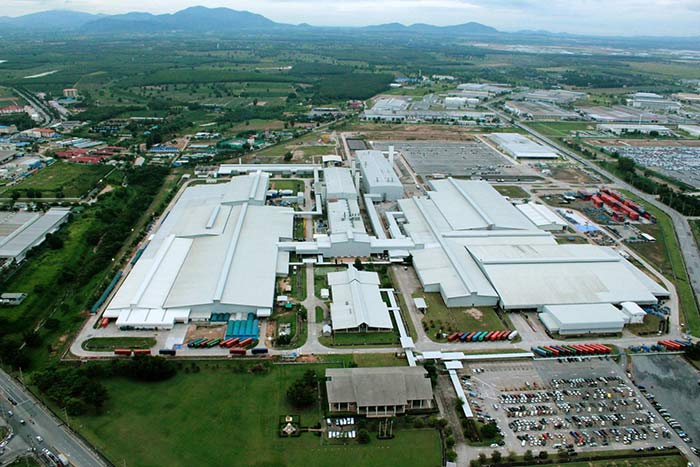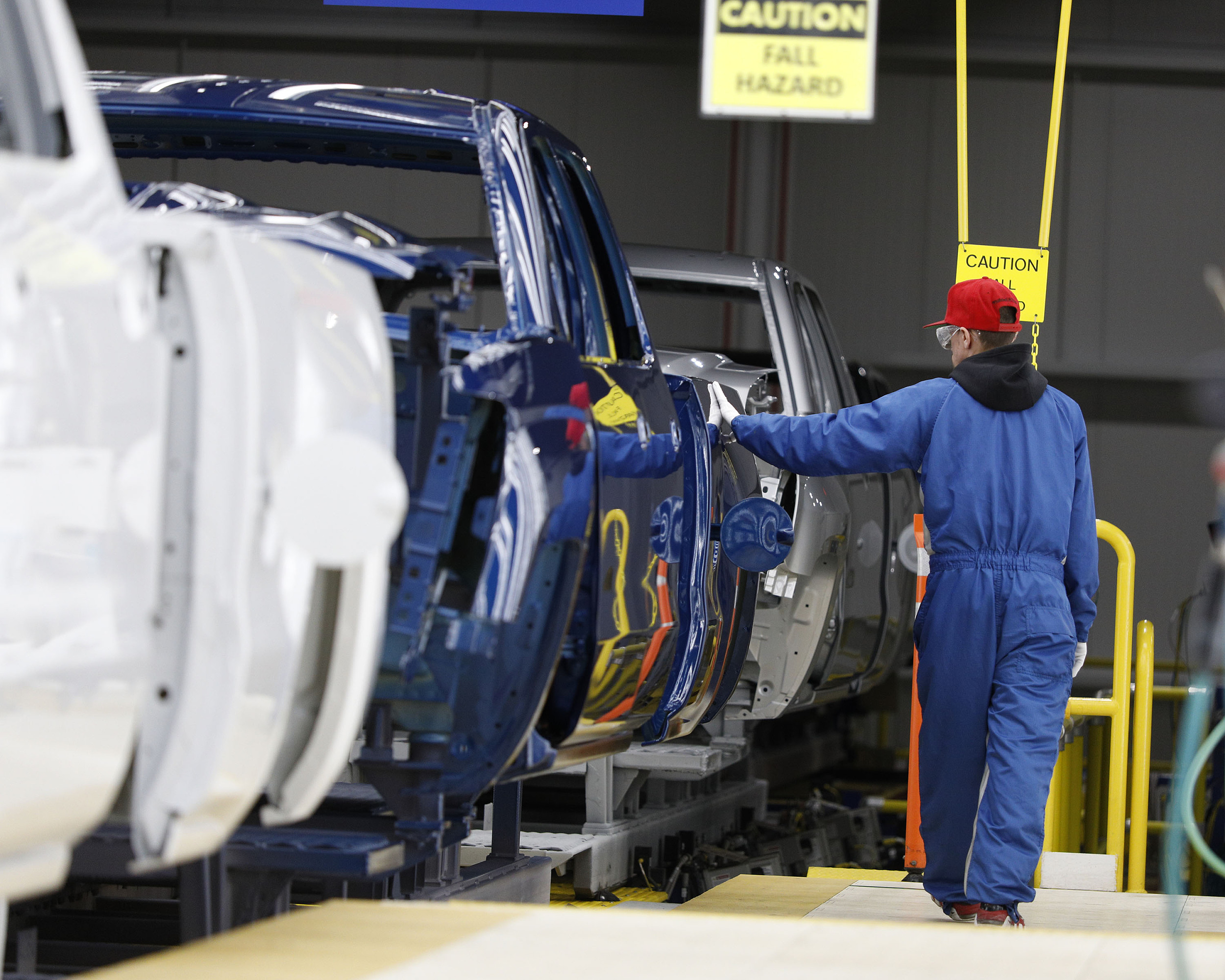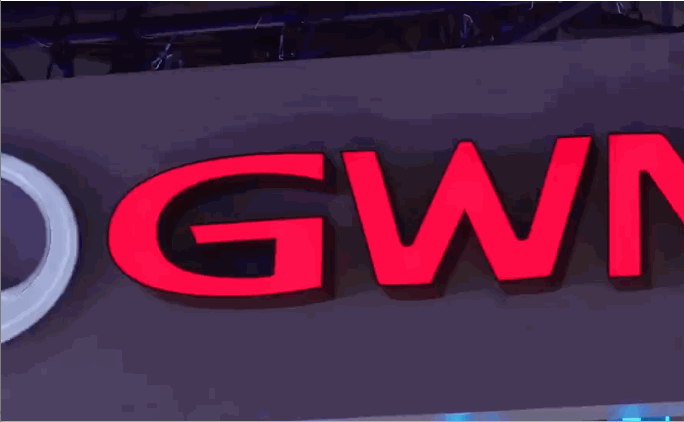Fight the risks first in an outbreak.
The Great Wall is at the gate of Southeast Asia.
On February 17, Great Wall Motors and General Motors jointly announced that Great Wall Motors will acquire General Motors ’manufacturing plant in Rayong, Thailand, which is also the 11th full-process manufacturing base in the world.
It is reported that the acquisition includes relevant production lines including Rayong ’s automotive plant and powertrain plant under General Motors Thailand. Among them, the vehicle assembly plant covers an area of 818,100 square meters, with a maximum annual production capacity of 135,000 units; GM Thailand’s engine factory covers an area of 22,000 square meters, with a maximum annual production capacity of 125,000 units.
The two parties plan to complete the transaction and final transfer by the end of 2020. At that time, GM’s Chevrolet will also completely withdraw from the Thai domestic market. The agreement has not yet been approved by the government and regulators.

Overview of General Thai factory 丨 Source: Great Wall’s official website
Rayong Province is located on the east coast of Thailand. It is the only national special economic zone in Thailand, part of the Eastern Economic Corridor. The local area is attracting new industries by developing infrastructure and implementing a series of preferential policies, with a view to building a nationwide trade and transportation center and becoming the “gateway to Southeast Asia.”
Thailand’s best-selling models are mainly Japanese cars and pickup trucks. At present, the GM Rayong plant mainly produces two models, the mid-sized pickup trucks Chevrolet Colorado and Chevrolet Trailblazers. After taking over, there is no need to spend a lot of time to transform, and it can be put into production quickly.
According to official instructions, Great Wall Motors “will radiate the entire ASEAN region with Thailand as the center and export its products to other ASEAN countries and Australia.”
The Great Wall is advancing swiftly, but GM has stopped losses in a timely manner worldwide. CEO Mary Bolla said, “We will reorganize our international business, focus on the market where we use the right strategy to promote strong returns, and give priority to promoting Global investment in the future development of mobile, especially in the field of electric vehicles and electric vehicles. “
Before, GM has taken business optimization actions in South Korea and South America. In addition to the Thai market, it will also take the same actions in Australia, Europe, Japan, and Russia in “markets that fail to bring sufficient returns to shareholders”. Act and phase out the city by 2021The market share of the Holden brand is less than 5%.

GM General Motors is shrinking globally. The picture shows the GM Detroit factory 丨 Source: Vision China
The automotive industry is experiencing a global contraction, and it is not the first time GM and Great Wall have joined hands to “overwinter.” On January 17 this year, Great Wall Motors and General Motors just reached an agreement on the acquisition of GM’s India Taligang plant. The acquisition is expected to be completed in the second half of 2020.
The Tarigaon plant has also become the second full-process vehicle plant of Great Wall Motors in addition to the Russian plant. However, it is more symbolic that the related models of Great Wall’s new energy brand Euler will officially enter India.
According to the plan of Great Wall, different brands will focus on different target markets. In Europe and the United States, its main brand is its luxury SUV brand WEY; in the Pan-China area, Haval is responsible for the main sales task. The way the Great Wall chose to enter India was to research and develop first.
In 2016, Great Wall established a local R & D center in India. At the end of 2019, Great Wall reportedly entered the Indian market by acquiring a local supply chain. In addition to vehicle development in the future, Great Wall will also invest in battery production to establish a complete supply chain system.

2020.2 Great Wall unveiled at the Indian Auto Show 丨 Source: Great Wall’s official website
This is different from the traditional thinking of going overseas with independent brands.
Autonomous car companies are scrambling to go to sea. In 2019, the total sales volume of Great Wall Motors was 1.06 million units. Due to the domestic market being in the stage of stock competition, the total sales volume had hardly increased, but its cumulative export of 65,000 vehicles increased by about 40% year-on-year. After the opening of the domestic car market in 2020, which has been affected by the epidemic, and its freezing point, the anti-risk capability of the overseas market has more or less warmed the sluggish domestic car companies.
“Chinese car companies do not go abroadThe road of internationalization is bound to die. “Wei Jianjun, chairman of Great Wall Motors, said that the overseas market is not only becoming a booster for independent brands to ensure sales, but more importantly, it can also ignite the booster for the” curve overtaking “in the Chinese automobile industry. p>
“No brand internationalization has no value.”
For a long time, independent brands have been known for their profit-making model of small profits but quick turnover. The lack of core technology and relatively low-end market positioning are their weak points in the face of international competition. However, in the field of new energy, China already has technological advantages and has established the most complete supply chain industry.
At present, Great Wall Motors has new energy research and development bases in South Korea, Germany and Austria, and has established more than 500 distribution networks in more than 60 countries including Russia, South Africa, and Australia. Blessing more advanced new energy technologies with lower localized production costs and going overseas from overseas, this time, can the “Great Walls” seize the opportunity for the global automotive industry to reduce costs and increase efficiency?